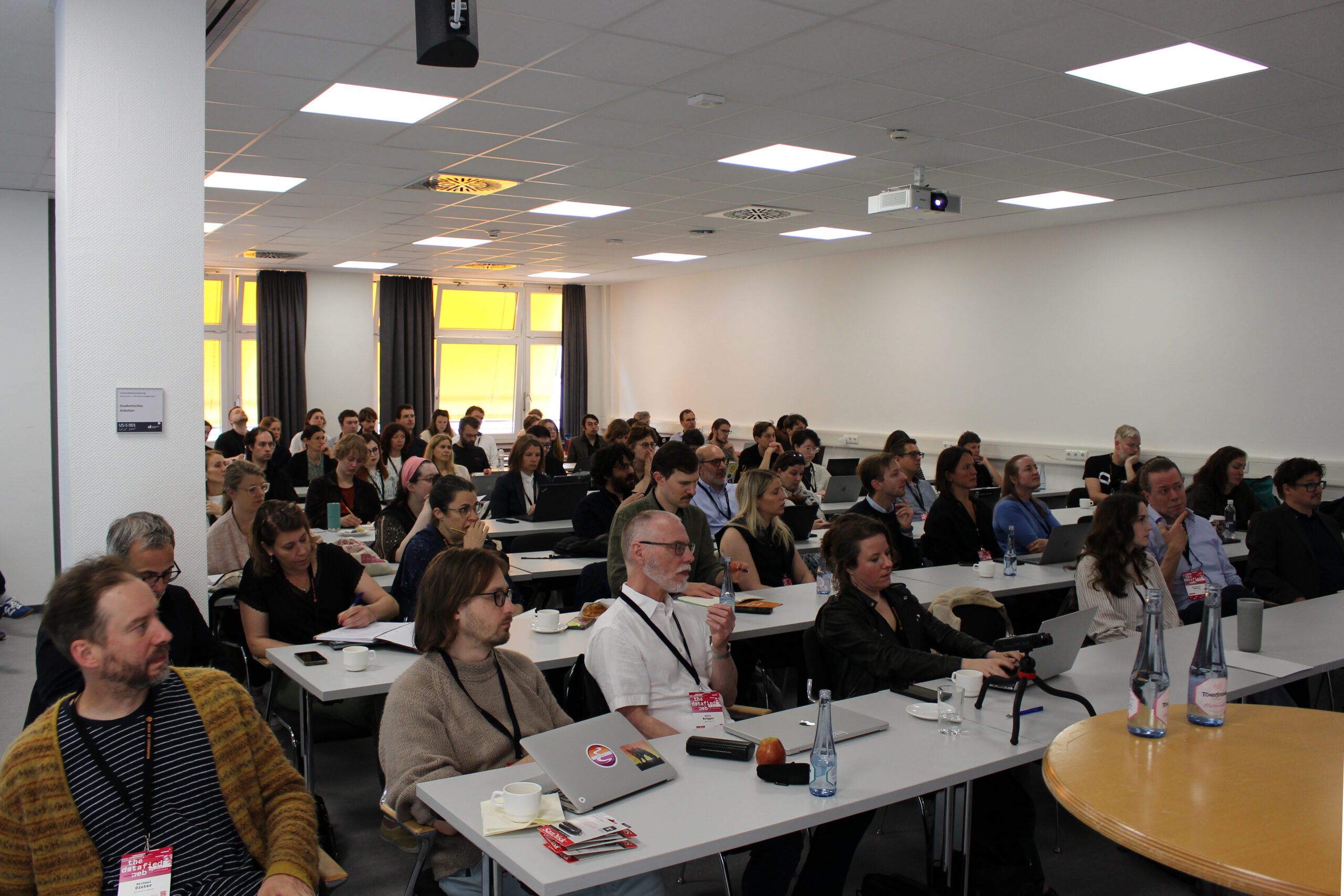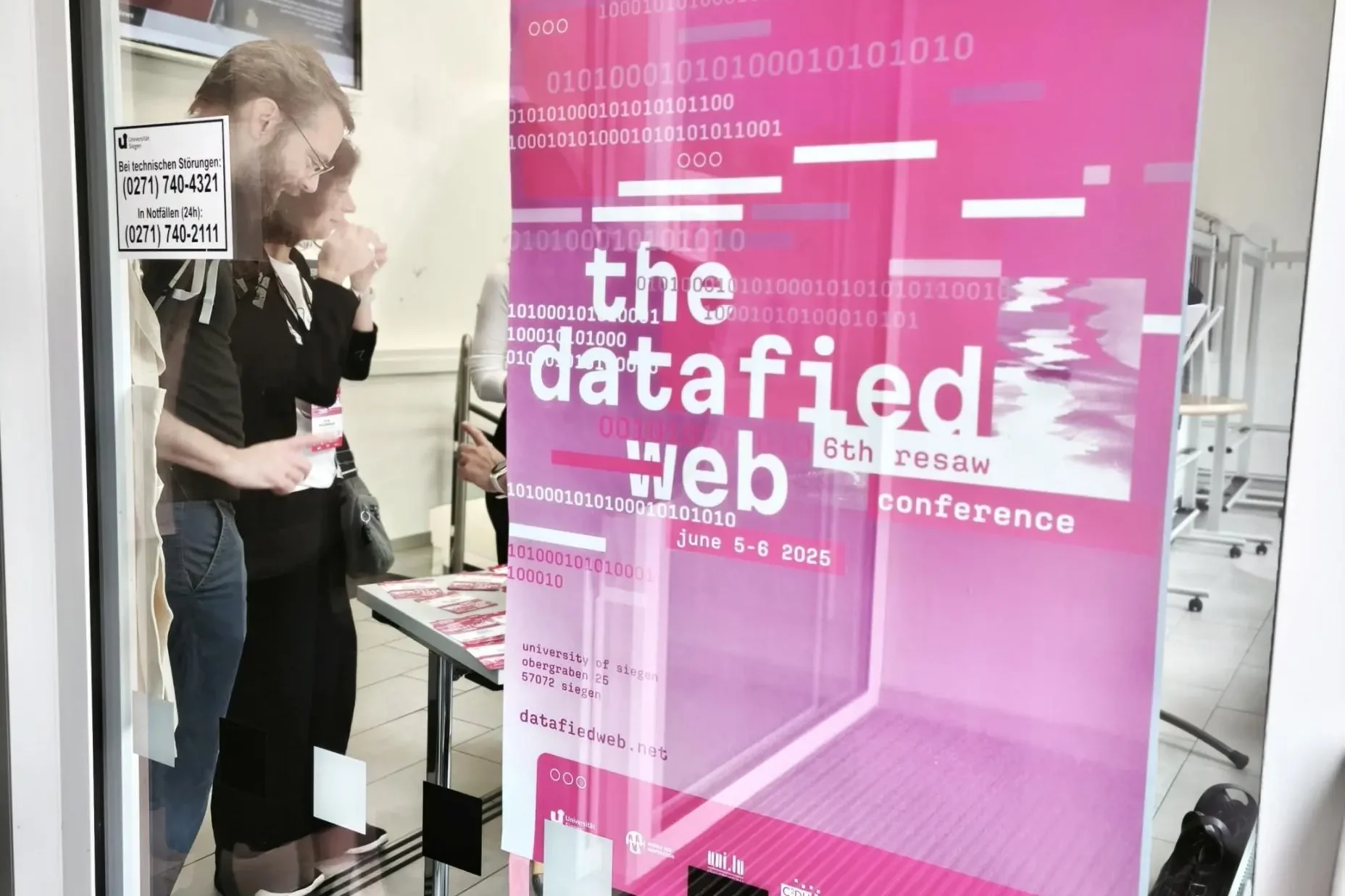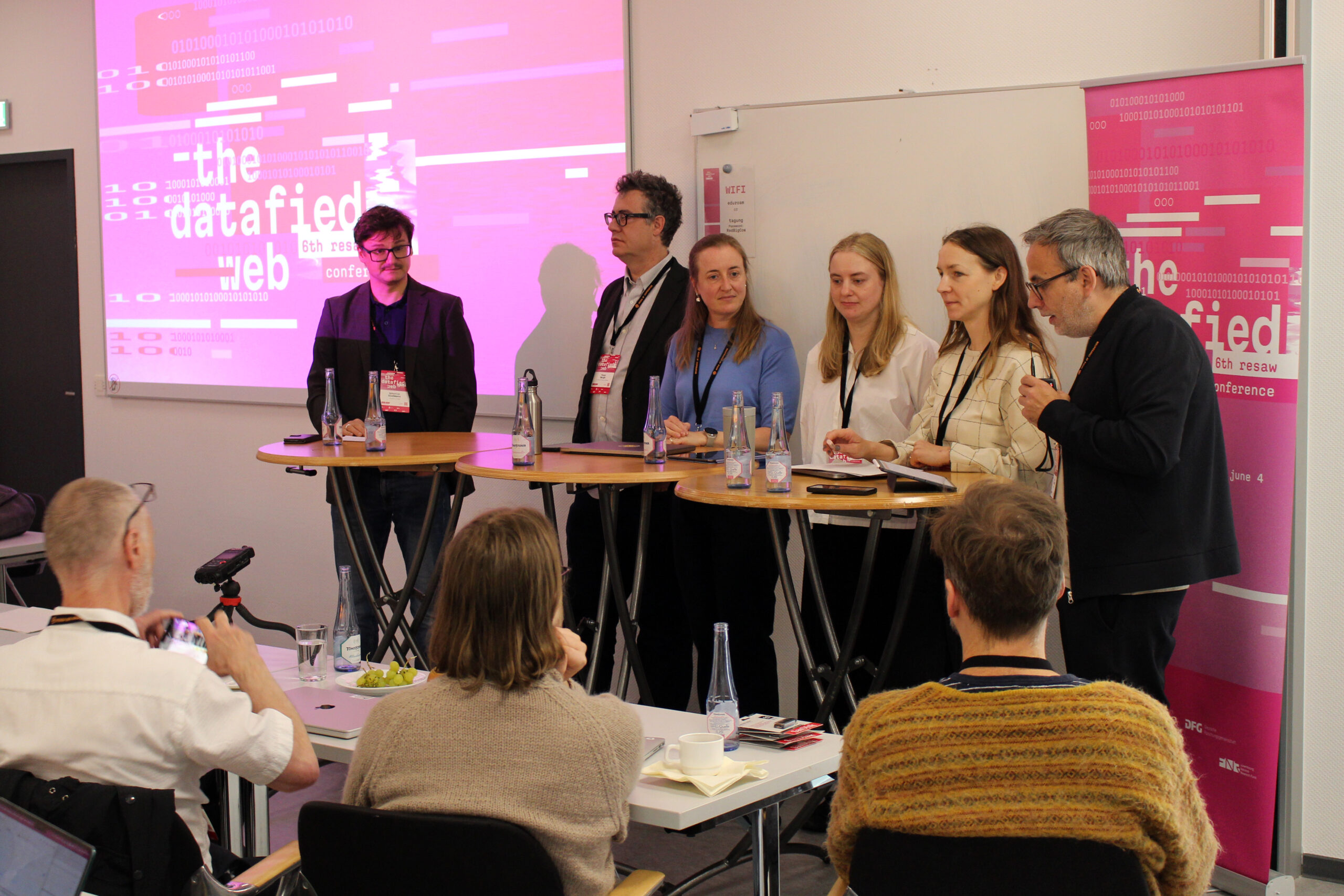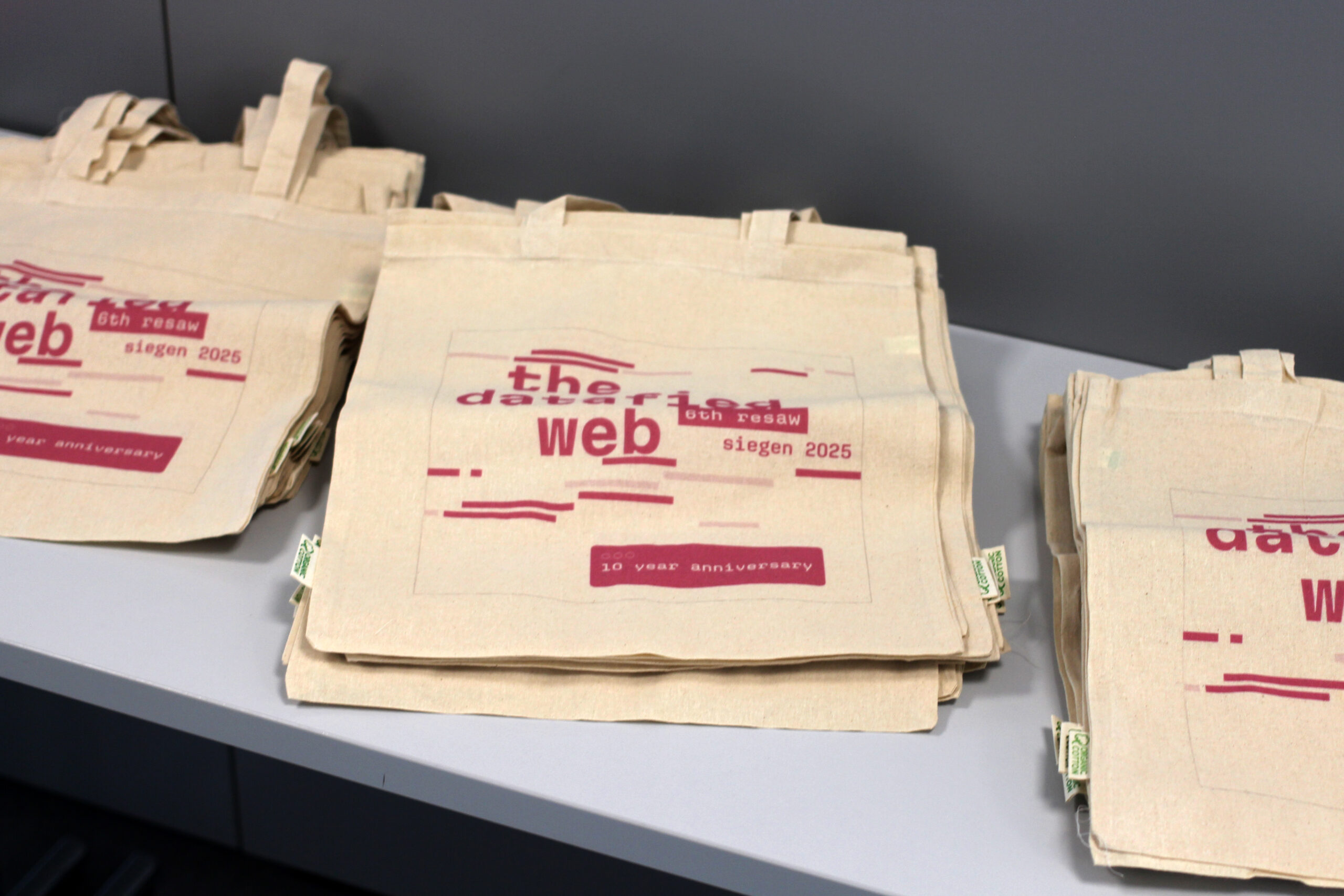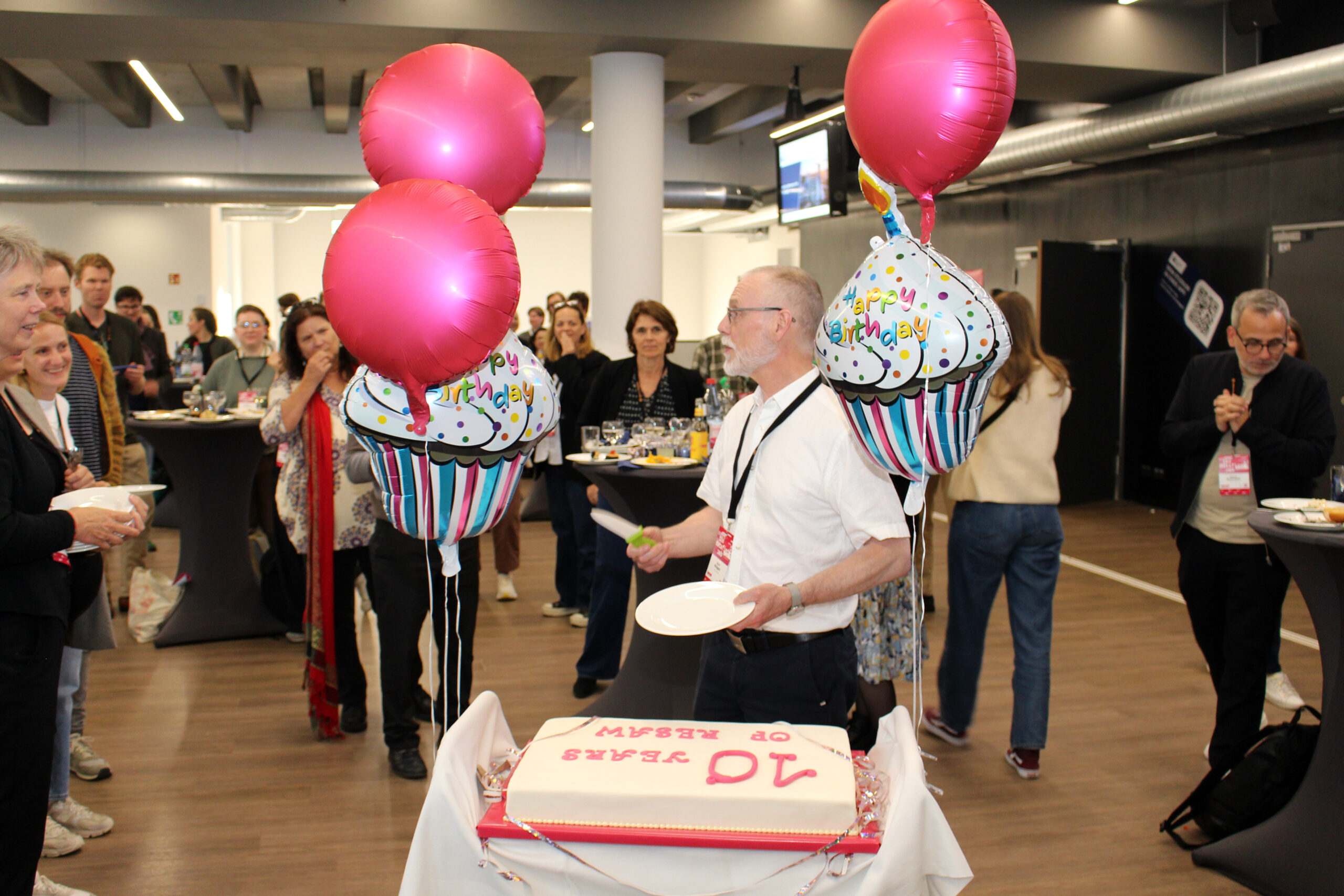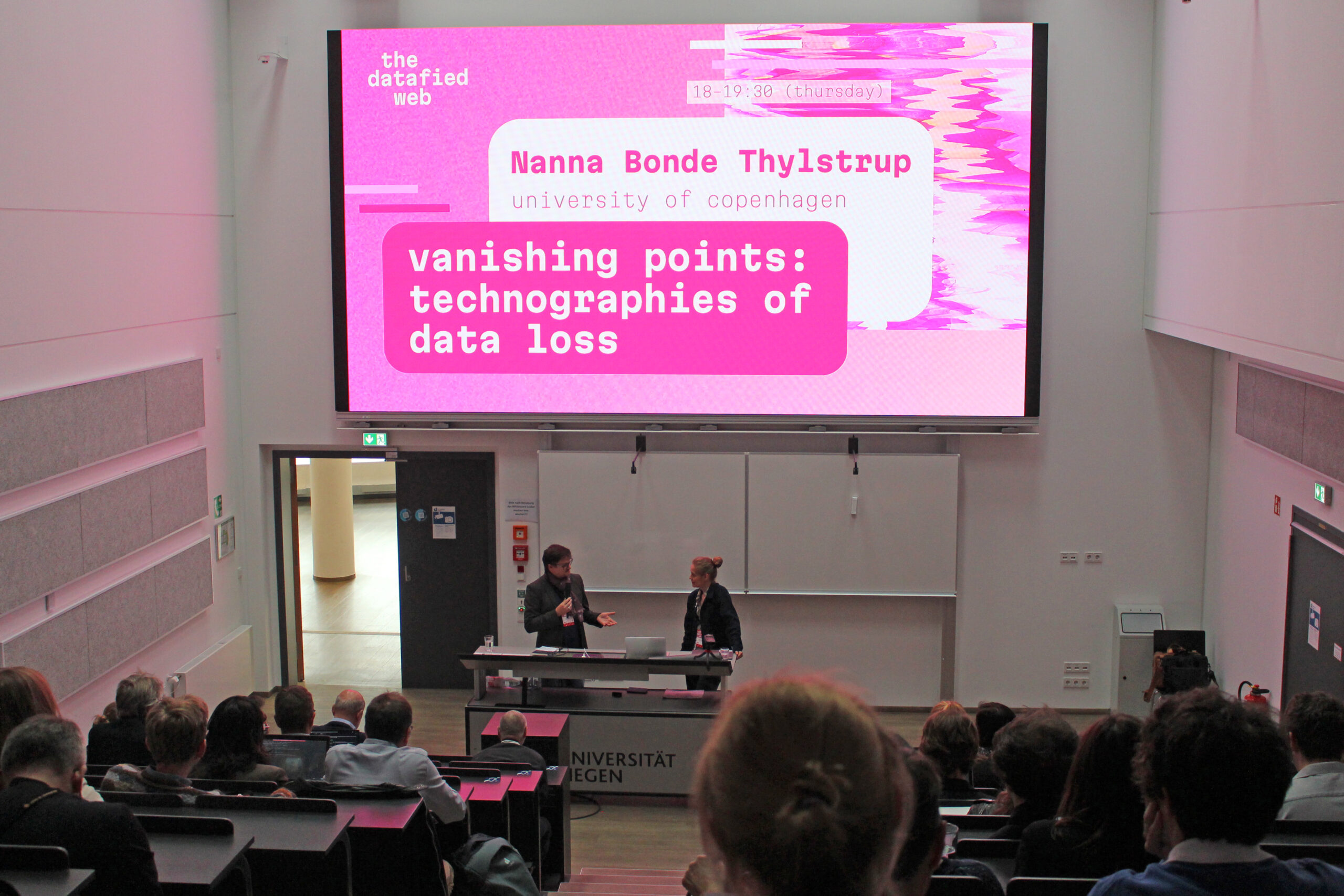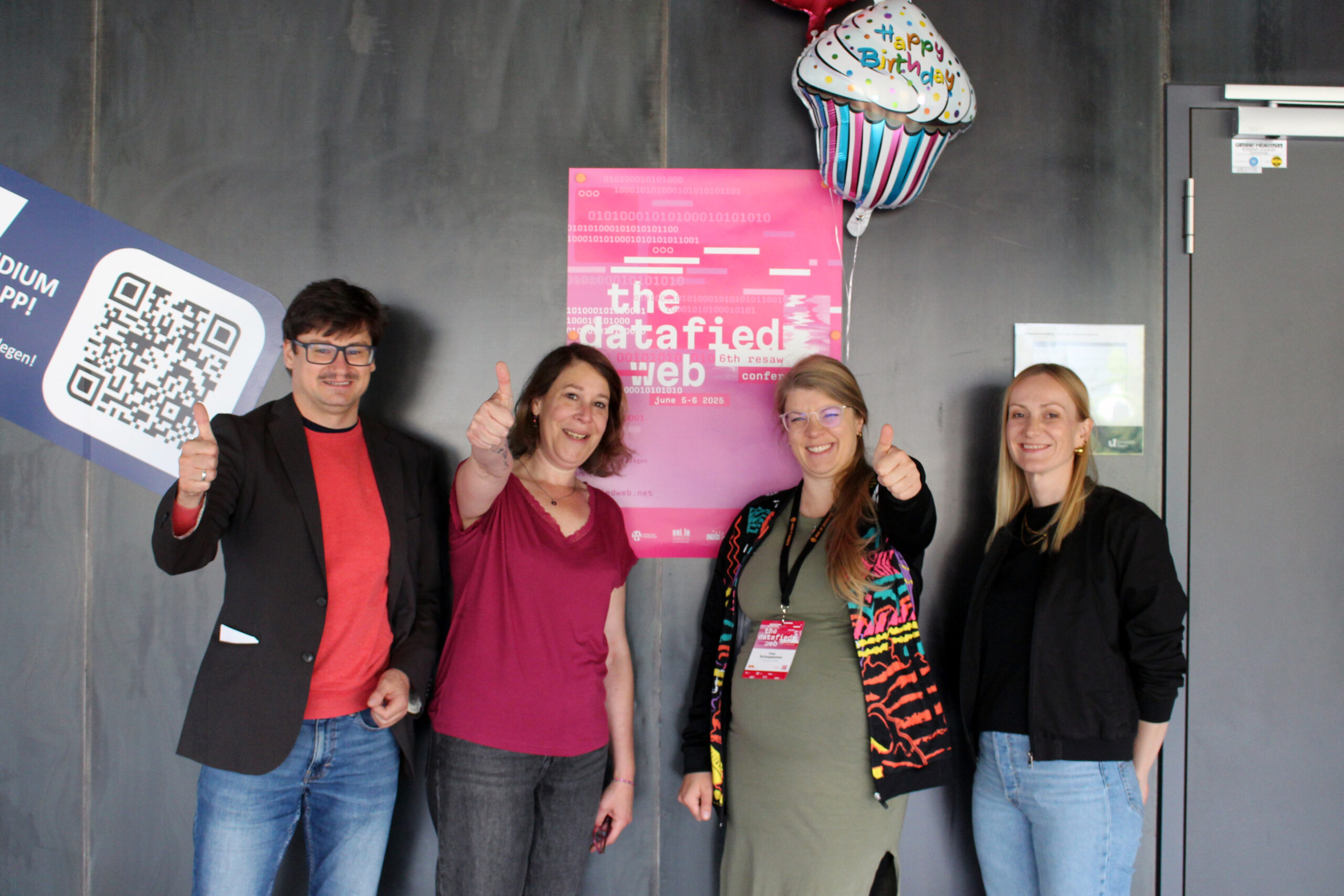Research on AI, Big Data Processing & Synthetic Media
The CRC “Media of Cooperation” launches its Critical Data School initiative at the University of Siegen with the international Autumn School “Synthetic Imaginaries: The Cultural Politics of Generative AI”.
The rise of artificial intelligence (AI), big data processing, and synthetic media has profoundly reshaped how culture is produced, made sense of, and experienced today. To ‘synthesize’ is to assemble, collate, and compile, blending heterogeneous components into something new. Where there is synthesis, there is power at play. Synthetic media—as exemplified by the oddly prophetic early speech synthesizer demos—carry the logic of analog automation into digital cultures where human and algorithmic interventions converge. Much of the research in this area—spanning subjects as diverse as augmented reality, avatars, and deepfakes—has revolved around ideas of simulation, focusing on the manipulation of data and content people produce and consume. Meanwhile, generative AI and deep learning models, while central to debates on artificiality, raise political questions as part of a wider social ecosystem where technology is perpetually reimagined, negotiated, and contested: What images and stories feed the datasets that contemporary AI models are trained on? Which imaginaries are reproduced through AI-driven media technologies and which remain latent? How do synthetic media transform relations of power and visibility, and what methods—perhaps equally synthetic—can we develop to analyze these transformations?
About the Autumn School
The five-day event at the University of Siegen explores the relationship between synthetic media and today’s imaginaries of culture and technology, which incorporate AI as an active participant. By “synthetic,” we refer not simply to the artificial but to how specific practices and ways of knowing take shape through human-machine co-creation. Imaginaries, in turn, reflect shared visions, values, and expectations—shaping not only what technologies do but how they are perceived and made actionable in everyday life.
Event Highlights
The five-day event features three keynotes and opens with a conference that brings together a total of six panels with contributions by scholars from Hong Kong, Norway, Australia, Germany, Austria, Romania, Slovenia, Spain, Taiwan, and the UK.
Our keynotes
- “Synthetic Narration: Do AI-generated stories flatten cultural diversity?” by Jill Walker Rettberg (Center for Digital Narrative, University of Bergen)
- “Synthetic situations: Ethnographic strategies for post-artificial worlds” by Gabriele de Seta (Center for Digital Narrative, University of Bergen)
- “Design Research with visual generative AI: failures, challenges, and research pathways” by Ángeles Briones (DensityDesign Lab, Politecnico di Milano)
From the second day onwards, the Autumn School moves into hands-on workshops and project work facilitated by a team of interdisciplinary scholars and data designers.
Mix questions! Monday, 8 September
Day one opens space for emerging questions—think of it as an idea hub. The panels explore diverse topics, from identities and digital narratives to platforms, infrastructures, and the politics of AI. The discussion-focused format invites participants to pose questions, share concepts, and highlight methodological challenges in an open exchange, rather than focusing on individual presentations.
Mix methods! Tuesday, 9 September-Thursday, 11 September
The next three days are about exploring new methods—hands-on! Each of our project teams will present a research question alongside a specific method to be collaboratively explored. Participants will not only learn how to design prompts and work with AI-generated text and images, but also how to critically account for genAI models as platform models. All projects draw on intersectional approaches, combining qualitative and quantitative data to explore the synthetic dimensions of AI agency—with contributions by Gabriele De Seta (University of Bergen), Marcus Burkhardt (University of Paderborn), Hendrik Bender (University of Siegen), Marloes Geboers (University of Amsterdam), Elena Pilipets (University of Siegen), Riccardo Ventura (Politecnico di Milano), Andrea Benedetti (Politecnico di Milano), Ángeles Briones (Politecnico di Milano), Carolin Gerlitz (University of Siegen), Sara Messelaar Hammerschmidt (University of Siegen), Jill Walker Rettberg (University of Bergen).
Synthesize! Friday, 12 September
The final day is dedicated to sharing, reflecting, and synthesizing the questions, methods, and insights developed throughout the week. Project teams will present their collaborative processes, highlight key takeaways, and discuss how their ideas and approaches shifted through hands-on experimentation with methods.
The Autumn School is organized by the DFG-funded Collaborative Research Centers Media of Cooperation (SFB 1187) and Transformations of the Popular (SFB 1472) together with the Center of Digital Narrative in Bergen, the Digital Culture and Communication Section of ECREA and the German National Research Data Infrastructure Consortium NFDI4Culture.

